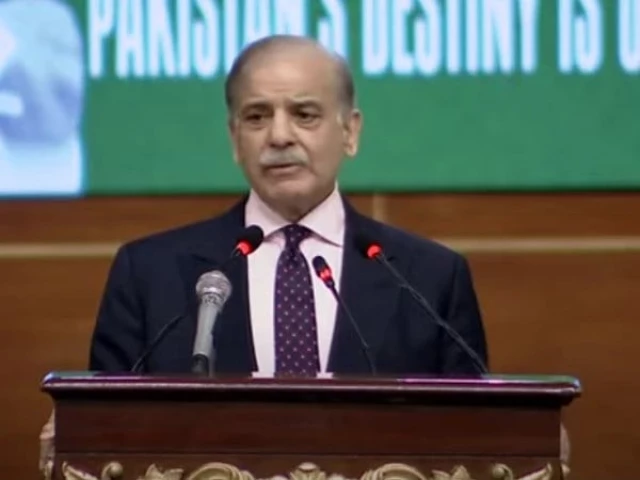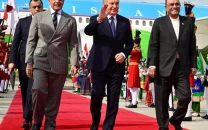PM set to unveil major power tariff relief
To announce 'big decision' in an address to nation; Ministry says people will receive a ‘surprise’

Prime Minister Shehbaz Sharif is set to unveil key power sector reforms on Thursday (today), with a reduction in electricity prices expected, following approval from the International Monetary Fund (IMF).
According to sources, the premier will provide details on revised agreements with Independent Power Producers (IPPs) and other crucial matters.
A significant cut in electricity tariffs is anticipated, with proposals suggesting a reduction of Rs6 to Rs8 per unit. The final decision will rest with the prime minister.
Shehbaz Sharif will chair a high-level meeting on the power sector today at 2pm, where he is expected to deliver an important address to attendees.
Senior federal ministers and key officials will also be present at the meeting.
Separately, in a statement, the Ministry of Information and Broadcasting said PM Shehbaz would address the nation tomorrow and announce a "big decision". "The nation will receive a surprise and significant piece of good news in the address."
The reforms come as the government faces mounting pressure to tackle soaring electricity costs, which have burdened consumers across the country.
Earlier on Tuesday, Minister for Defense Khawaja Muhammad Asif said that the incumbent government was taking all possible steps to reduce power tariffs to provide relief to the common man.
The reduction in power tariff could be made in the next few days, he said while talking to a private television channel.
In reply to a question about PTI founding chairman Imran Khan's release, he said that Imran was facing several cases and the court could decide his fate under the light of evidence.
The government, he said could not do anything regarding Imran's release. He added that PTI workers and the leaders had been involved in attacking ecurity institutions on May 9, riots.
The PTI is playing politics for personal interest, he added, urging PTI leaders to work for national interest.
The federal government had filed a request with the National Electric Power Regulatory Authority (Nepra) to reduce electricity prices by Rs1.71 per unit countrywide - including Karachi.
It was widely reported in the media through official leaks that the prime minister would announce a Rs8 per unit reduction in electricity rates in his speech to the nation on March 23. The prime minister, however, did not announce any such relief package in his Pakistan Day speech.
Turns out, the reduction in electricity tariffs, promised by the government, could not get past the International Monetary Fund (IMF), which was holding back a staff-level agreement (SLA) on the first biannual review of the $7 billion Extended Fund Facility (EFF).
But earlier, the Fund disclosed that it had allowed only a Re1 per unit reduction in the power tariff against a grid levy imposed on industrial captive power plants.
During the course of the March 4-14 review talks, a plan was shared with the IMF staff mission for around Rs2 per unit tariff reduction on account of some savings through the renegotiation of contracts with the independent power producers.
As an afterthought, the authorities were tempted to increase the petroleum levy on petrol and diesel by Rs10 to a maximum of Rs70 permissible under the Finance Act 2025 to divert the revenues towards maximising relief in power tariffs. This can have another impact of about Rs2-2.50 per unit.
According to the government's request to Nepra, the prices will be reduced by increasing tariff subsidies.
The regulator will hear the government's petition on April 4, with the request pertaining to all companies - including K-Electric.
According to the petition, the government has proposed to implement the change from April to June 2025.
The Prime Minister's Office (PMO) had announced on March 15 that the premier had decided to maintain the petroleum prices at the existing level against up to Rs13 per litre worked out by the oil regulator and petroleum division with a promise to transfer its financial impact to electricity consumers.






















COMMENTS (1)
Comments are moderated and generally will be posted if they are on-topic and not abusive.
For more information, please see our Comments FAQ